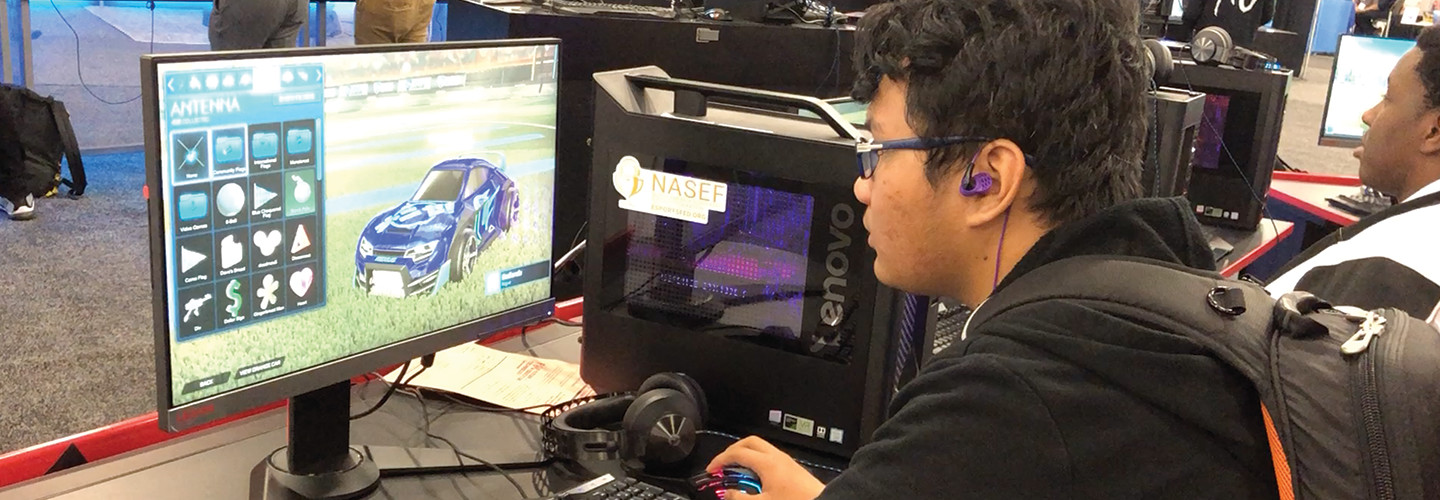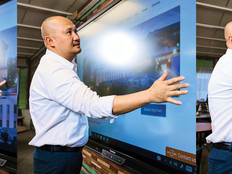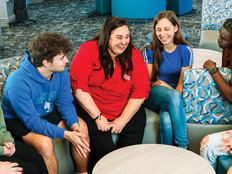Fan art is also a “huge” part of the program, Thienard Pierre said. Students create artwork related to the games they play, sometimes on League of Legends, Smash Bros., or just on a desktop.
“We’re trying to get students to be producers of the games as opposed to players and consumers,” Thienard Pierre said.
Future Expansion Already on the Table for Esports Program
Creating fan art was one aspect of esports that attracted Will Chery, a student at North Miami Senior High, who is president of the school art club. Chery also sees the program as a way to combine two things he loves: extracurricular activities and video games. “If it’s two in one, since I like extracurricular activities and esports, why not just join?”
Esports offers opportunities to meet people from different schools and visit “cool places,” Chery said.
Potential careers tied to or related to esports include esports management, hospitality and tourism. Working on aligning it to industry certifications would be another incentive for students, as well as teachers (who get bonus pay for every student who passes), said Cristian Carranza, administrative director for the district.
MORE FROM EDTECH: Learn about the potential benefits of state-sanctioned esports events.
Miami-Dade County Public Schools had to ensure sufficient infrastructure was in place to start the program and that schools had the necessary computer labs to access gaming platforms, he said.
Student representation also matters. “We wanted to have a good representation of every community we serve,” Carranza said.
Given the volume of interest in esports in district schools, administrators may expand the program to all high schools and may eventually include middle schools, he said — but for now, no plans to start esports programs in the elementary schools because of concerns about students’ screen time.
EdTech is covering FETC, so keep an eye on this page for conference coverage. Follow @EdTech_K12 on Twitter for live updates, and join the conversation at #FETC










